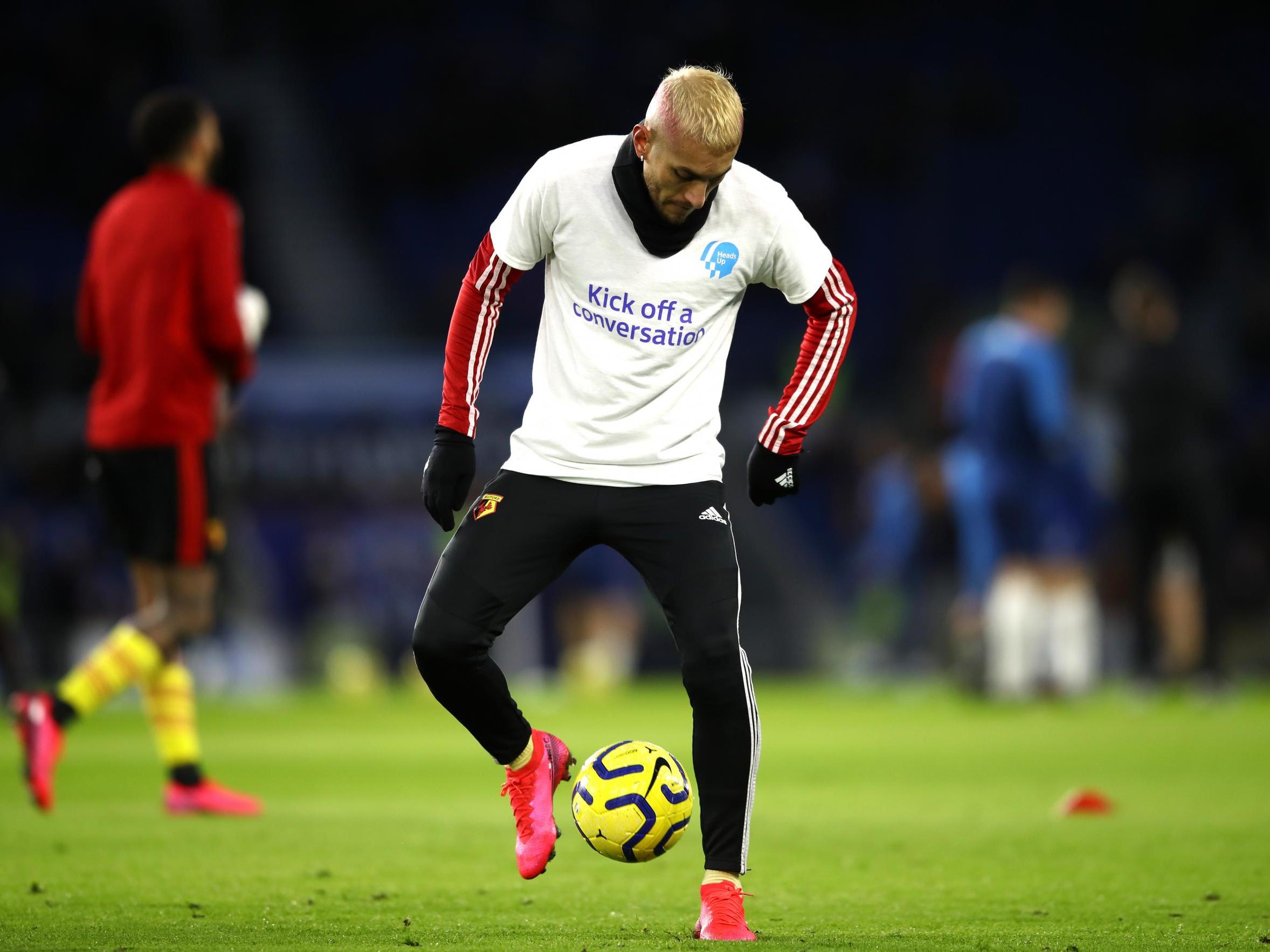Coronavirus: Players at increased risk of mental health problems during pandemic, warns Fifpro
Global players’ union fears those stranded away from home could be facing ‘enormous distress’

Your support helps us to tell the story
From reproductive rights to climate change to Big Tech, The Independent is on the ground when the story is developing. Whether it's investigating the financials of Elon Musk's pro-Trump PAC or producing our latest documentary, 'The A Word', which shines a light on the American women fighting for reproductive rights, we know how important it is to parse out the facts from the messaging.
At such a critical moment in US history, we need reporters on the ground. Your donation allows us to keep sending journalists to speak to both sides of the story.
The Independent is trusted by Americans across the entire political spectrum. And unlike many other quality news outlets, we choose not to lock Americans out of our reporting and analysis with paywalls. We believe quality journalism should be available to everyone, paid for by those who can afford it.
Your support makes all the difference.Professional footballers often live alone in a strange country, far from their families and work in a high-adrenaline profession where they can be heroes one day and forgotten the next.
Not surprisingly, they are prone to mental health problems and the global players’ union Fifpro says the uncertainty caused by the novel coronavirus crisis will make that worse, with women especially vulnerable.
“Mental health is a huge consideration,” said Fifpro general secretary Jonas Baer-Hoffmann. “We have, from studies over the years, seen there are elevated risks for anxiety and different psychological problems for players compared to the general population because it’s a tense and precarious employment for most of them and (this) makes it worse.”
Football around the world has been brought to a standstill by the pandemic with domestic leagues put on hold and the Euro 2020, Copa America and Olympic soccer tournaments postponed for one year.
Top players have come under pressure to accept wage cuts to help their clubs through the stoppage, however Fifpro says this is not an option for many outside the biggest leagues who often struggle to make ends meet.
“We have many young individuals who are on their own, away from their home countries, they often have no family support in these countries and many of them literally have one-year employment contracts,” said Baer-Hoffmann. “That creates enormous distress about whether they will have any kind of income coming in at the end of this season.”
In a survey published in 2015, Fifpro found that 38 per cent of active players and 35 per cent of former professionals faced depression or anxiety problems at some stage.
One issue at the moment, Fifpro says, is that players are usually focused entirely on their profession and may find themselves with a void when they have no matches to think about.
In a bid to help the players, Fifpro has published advice under the title “Keep your mind sharp”.
It reminds them to maintain a healthy lifestyle and sleep patterns, stay connected via social media, follow a routine and take breaks, such as listening to music or watching a favourite TV show.

It advises players to “focus on what you can control as we sometimes fixate on events outside of our control.” Players should follow the news, it adds, but not too much.
“Avoid reading everything on COVID-19 in the news or on social media because this can unnecessarily amplify stress or worry,” it says.
Some national players’ unions, meanwhile, have set up hotlines to help their members.
Baer-Hoffman said women players might struggle more as their living conditions were often inferior to those of male players.
“They are on their own, sitting in a small apartment that the club is providing with hardly any social interaction or family support nearby and that creates enormous pressure mentally,” he added.
Reuters
Join our commenting forum
Join thought-provoking conversations, follow other Independent readers and see their replies
Comments